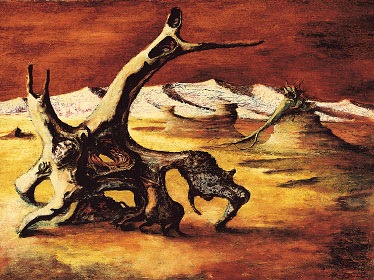It can be a bit frustrating banging on about the importance of agricultural biodiversity when almost everybody else seems to be focused on simplistic solutions to complex problems. Frustrating, and tiring. So I’ll just point you to two items you can read for yourself and decide whether we are truly nuts. First, Nature’s report from Yunnan in China about the drought there. Secondly, a paper by Professor Yy Zhu and his colleagues, Crop Diversity for Yield Increase. Anyone should be able to join the dots.
Drought resistance: “it’s complicated”
In case anyone out there is still wondering why all those early promises of drought-resistant crop varieties have been so long arriving, Ford Denison has a wonderfully clear explanation. He takes as his starting point a 2004 paper about the development of Drysdale wheat, bred in Australia for water use efficiency. And he came to that in search of counterexamples to his default view.
I’m always skeptical when someone speculates that we could double crop yield just by increasing the expression of some newly discovered “drought-resistance gene.” My rationale is that mutants with greater expression of any given gene are simple enough to have arisen repeatedly over the course of evolution.
The question Denison asks of Drysdale wheat is whether the tradeoffs that in the past prevented the selection of greater productivity — for example the ability to withstand drought being penalized in average and wetter years — are no longer relevant.

Rather than give away the answer, or attempt to summarize the key arguments, I just urge you to go and read the full post. I will, however, add a little tidbit I discovered all on my own (with Google’s help). You might think that naming a drought-resistant wheat Drysdale marks a marketing triumph. You would be wrong. It recalls Russell Drysdale, an Australian artist whose paintings of rural life in general and drought in particular captured the land and its people.
Maize and genetic engineering: why bother?
I was talking to Greg Edmeades tonight. Our conversation coalesced on the topics of the recent posts on maize water stress tolerance and on the usefulness of engineering purple tomatoes.
For many years, Greg led the maize crop physiology group at CIMMYT. He says that one of the main reasons for their success with drought tolerance is their long term institutional commitment to it: 35 years and counting. A particularly impressive feat is the widespread adoption of their maize varieties in southern Africa. For example, ZM623, selected from South African parents by Marianna Bänziger, is grown on about a million ha, says Edmeades.
His take on biotech for drought tolerance is, sure, “use whatever works, but if you are an African agricultural research institute, then, why bother?” Monsanto is reporting 10-15% yield increase under drought stress, and says it will make their technology freely available for use in Africa. Edmeades reckons that you can get a similar yield increase in about 7 years of conventional breeding and selection. And less when using molecular markers. If that is the case, it may not be worth it to deal with the complexities of genetic engineering.
Unless, perhaps, the approaches are entirely additive and you get a combined yield benefit of 30%. I think that’s unlikely. Drought tolerance is about making best use of the available water. It does not increase the amount of water.
Later:
Greg told me that I had been a little harsh in suggesting that he would not advise national programs in Africa to use a transgenic approach to drought tolerance. He would only advice against transgenes if “they had access to a steady stream of good germplasm improved for drought tolerance, and there was no regulatory framework for transgenes in place in that country. If regulatory frameworks exist, and there is no facility of improving their own varieties (or newly released commercial varieties) for drought tolerance in a systematic way, then certainly I’d take the transgenic option, especially since it is being offered on a royalty free basis.”